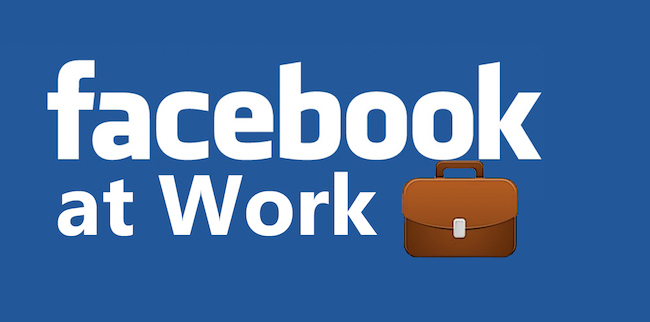Normally in most workplaces, Facebook is banned because business leaders view it as counter-productive. The tides have now seemed to turn in favor of Facebook following the social networking site’s announcement that it will be launching Facebook at Work in 2016 to the general public.
Facebook At Work will soon become one of the sought-after collaboration tools for companies seeking to speed up tasks and projects that require in-depth collaboration.
Most recently, the Royal Bank of Scotland was convinced of the productivity brought about by Facebook at Work and the company adopted the product for its employees. But there are hundreds of other organizations as well that have begun to appreciate the capacity of Facebook At Work.
Facebook at Work is the business version of social networking site. Although social networking has revolutionized the way people interact and communicate with one another, it has not done much yet to help them boost productivity at work. Probably until now.
With the planned rollout of Facebook at Work, the Menlo Park company seeks to change that. The idea behind Facebook at Work is to improve how employees connect in order to improve their productivity.
This can be done by incorporating the software tools used by companies into the social networking site to allow for a smooth operation between disparate platforms. Sort of interoperability. It will enable employees to stay logged in to Facebook at Work while going about their regular tasks. There have been many attempts at this goal, but majority have failed.
Facebook seems to have made the necessary steps to ensure the success of the social collaboration platform for businesses. In the past couple of months, it has subjected Facebook at Work to beta testing and worked with at least 300 companies to try out that version. Among other things, Facebook sorted out what the companies really needed and incorporated their feedback into the platform.
Now a great deal of organizations, including RBS and Heineken NV, want to jump on the Facebook at Work wagon once the full version is released next year. Besides the beta testing, Facebook already has first-hand knowledge of how effective the platform is when it comes to helping employees do their job since it is the main tool used by Facebook’s employees themselves.
The only catch is that Facebook at Work will be different from your personal Facebook account, and it will not require that you enter your personal details when you log in. Not that it is not secure for storing personal data. In fact, Facebook says the software is built with an enterprise-grade security system.




